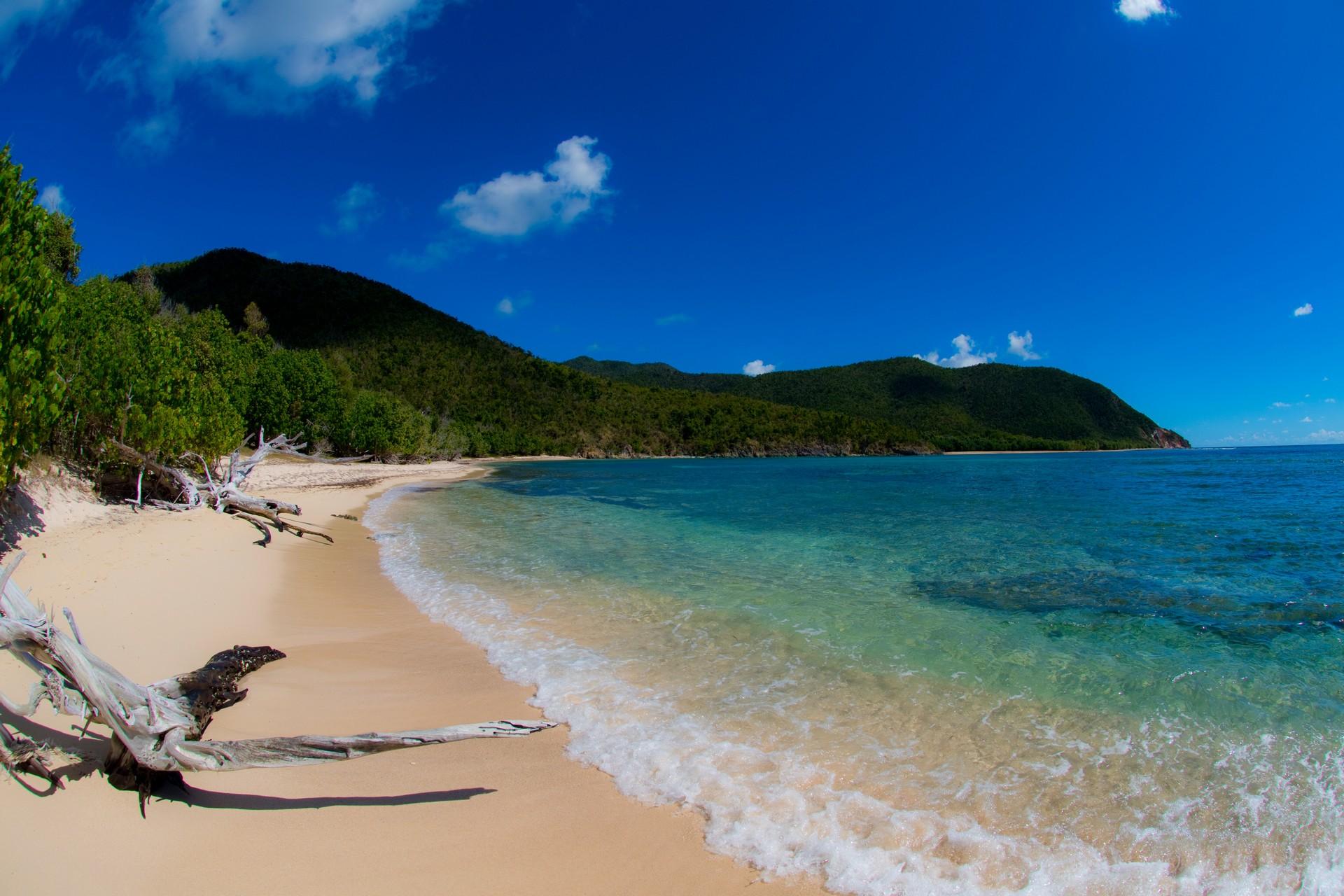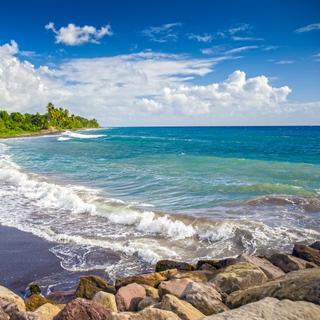
Saint John weather and climate

Saint John weather and climate
Day
31 °C
Night
24 °C
Sea
28 °C
Precipitation
91 mm
in month
Rainy days
12 days
in month
Daylight
13 hours
average
Sunshine
9 hours
average
Humidity
76 %
Weather charts for Saint John

Find more destinations like this
Destinations with similar weather to Saint John
Other destinations in U.S. Virgin Islands
Weather overview for Saint John
Weather overview
Saint John, located in the U.S. Virgin Islands, boasts a remarkable tropical climate that appeals to visitors year-round. Daytime temperatures are comfortably warm, peaking at an average of 31 °C (88 °F) during the sultry month of August, while the cooler days of January offer a more moderate 28 °C (82 °F). Rainfall patterns exhibit clear seasonal variations, with March typically being the driest month featuring only 7 days of precipitation, and November standing out as the wettest period, averaging 14 days of rainfall. As for oceanic delights, the warm tropical waters reach their highest temperature in September, measuring 29 °C (84 °F), whereas February welcomes the chilliest dips at a refreshing 26 °C (79 °F). The island's evenings are similarly temperate, with the lowest nocturnal temperatures in February at 21 °C (70 °F), and the warmest nights occurring in July, when the mercury hovers around 24 °C (75 °F).
January weather
Saint John observes a decrease in sea temperature to 26 °C (79 °F) during January, with the minimum average daytime temperature of the year also noted this month. Wet days decline in number to 10 days, and a decrease in rainfall volume is seen as well. Alongside this, the number of clear sunny hours sees a gradual increase.
February weather
Notably, February in Saint John brings the lowest sea temperatures at 26 °C (79 °F), accompanying the dip in nighttime temperatures. Wet conditions are on a downtrend with an average of 10 days of rain, marking the least rainfall volume of the year.
March weather
In March, Saint John boasts the lowest number of wet days, averaging just 7 days, while also seeing a rise in average daytime temperatures to 28 °C (83 °F) and a drop in humidity levels to 73 %. The island celebrates the most sun-filled hours with an average of 9 hours.
April weather
With the onset of April, Saint John's sea temperature begins to rise to 26 °C (80 °F), daytime temperatures also continue their ascent, averaging 29 °C (84 °F). The number of rainy days begins to increase to 8 days, with rainfall volumes following suit.
May weather
May sees a further boost in both daytime and sea temperatures in Saint John to 30 °C (85 °F) and 27 °C (81 °F), respectively. The frequency of wet days continues to increase to 11 days, and the nights grow warmer, aligning with the onset of decreased sunshine hours.
June weather
June's increasing sea temperatures reach a pleasant 28 °C (82 °F), alongside a steady rise in daylight temperatures peaking at 30 °C (87 °F). Rainfall begins to ease, and the longest daylight hours of the year are enjoyed during this month.
July weather
The month of July in Saint John heralds the beginning of higher rainfall amounts at 91 mm (3.59 in) and an uptick in the number of wet days. The zenith of nighttime temperatures is recorded this month, coinciding with the peak in wind speeds.
August weather
Saint John experiences its warmest daytime temperatures in August, averaging a toasty 31 °C (88 °F). Rainy days show a continual increase, while the amount of rainfall this month also ascends.
September weather
As September rolls in, so does the warmest sea temperature of the year in Saint John at 29 °C (84 °F). Yet, the island witnesses a decrease in sunny hours, reflecting the seasonal shift. Rainfall continues on an upward trend.
October weather
With October's arrival, Saint John sees a rise in both rainy days and relative humidity, alongside a downward adjustment in both day and nighttime temperatures. Evidently, the wind speeds also see a reduction.
November weather
November signifies a continuation in the decline of daytime temperatures in Saint John, averaging 29 °C (85 °F), coupled with the onset of decreasing sea temperatures. The peak in the number of rainy days can be seen during this time, and the shortest sunshine duration is noted.
December weather
December's descent in daytime warmth is matched by the similarly waning sea temperatures in Saint John. A slight reduction in rainy days is observed, even as rainfall volume decreases, capped off with the year's shortest day lengths.
FAQs
Is January an optimal time to vacation in Saint John?
Absolutely! January in Saint John is idyllic with daily temperatures reaching a comfortable 28 °C (82 °F) and the sea at a delightful 26 °C (79 °F). Nighttime temperatures average around 21 °C (70 °F), making it a perfect time for holiday-makers.
How do February's sea temperatures feel in Saint John?
The sea reaches a cool 26 °C (79 °F) in February, which some may find brisk, while others may still enjoy extended swims in the invigorating waters of Saint John.
Can visitors expect a warm March in Saint John?
March in Saint John is pleasantly warm with average daytime temperatures around 28 °C (83 °F) – warm enough to enjoy the outdoors without discomfort.
What daytime temperatures are typical for April in Saint John?
Expect delightful April days in Saint John with an average temperature of 29 °C (84 °F), offering perfect conditions for beach outings and various outdoor activities.
During May nights in Saint John, what temperatures can be anticipated?
Night temperatures in May average a balmy 23 °C (73 °F), setting the stage for enjoyable evening strolls and vibrant nightlife beneath the tropical skies of Saint John.
Does June mark the commencement of the rainy season in Saint John?
Contrary to what might be expected, June steers clear of the rainy season in Saint John, with the weather showcasing a mere 10 days of rainfall.
What's the usual count of rainy days one can expect in Saint John during July?
July typically presents visitors with around 12 days as rainy, hinting at more frequent showers throughout the month.
How many hours of sunshine are likely in Saint John for the month of August?
August promises an average of 8 hours of glorious sunshine each day in Saint John.
What are the average wind conditions in Saint John come September?
In Saint John, September's winds average out to a gentle 4.
How does October's climate shift in Saint John?
October in Saint John is marked by more frequent rainfall, peaking at around 13 days, and a slight cooling trend begins to set in.
What kind of rainfall pattern can be expected in Saint John during November?
As the zenith of the wet season, November envelops Saint John with an average of 14 days drenched in rainfall, with higher volumes adding to the tropical atmosphere.
What is the relative humidity like in December in Saint John?
December's humidity levels in Saint John hover at an above-average 76 %, though they rarely impede daily activities or comfort for most individuals.









